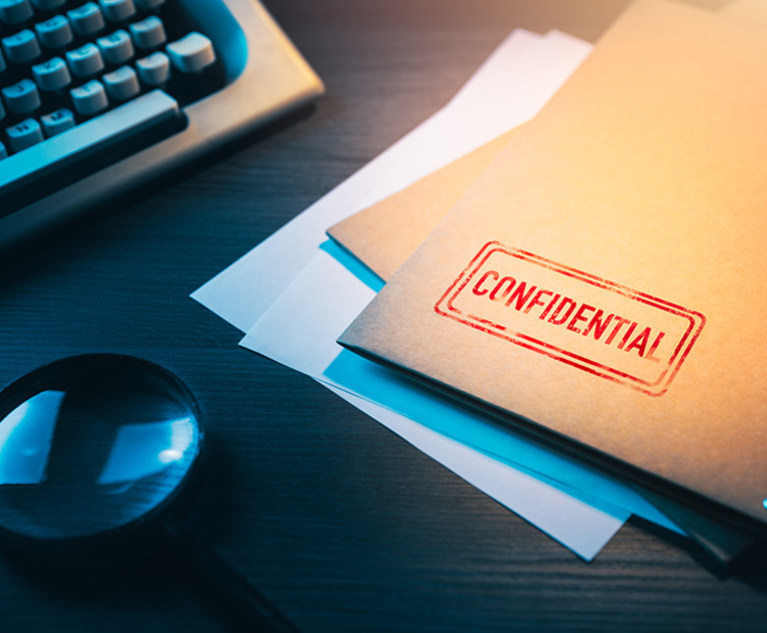Robert J Jossen

November 17, 2023 | New York Law Journal
Ten Ways To Know When To Undertake MediationWhen is the best time to undertake mediation of a dispute? In this article, Robert J. Jossen presents 10 observations that can bring light to this complex questions.
By Robert J. Jossen
8 minute read

November 17, 2021 | New York Law Journal
Is Your Mediation Confidential?In the absence of national rulemaking, participants in mediations must be aware of the risk of non-confidentiality.
By Robert J. Jossen
7 minute read

November 28, 2016 | New York Law Journal
Taking a Targeted Approach to Arbitration DiscoveryRobert J. Jossen, Matthew L. Mazur and Michael J. Sullivan of Dechert write: In drafting arbitration agreements, parties should deal with discovery issues at a time when they are in an agreeing mood. Where this has not occurred, counsel must take a targeted approach to arbitration discovery. The focus must be on obtaining evidence necessary to prove key facts at a hearing, with recognition that many of the evidence-gathering tools familiar to civil litigators may be unavailable.
By Robert J. Jossen, Matthew L. Mazur and Michael J. Sullivan
16 minute read

June 29, 2016 | Corporate Counsel
Is Global Enforcement Parity the New Norm?The specter of competition among international regulators makes it essential for these entities to develop and pursue a coordinated strategy for all such matters.
By Robert J. Jossen, Michael J. Gilbert and Hrishikesh N. Hari
16 minute read
September 09, 2013 | New York Law Journal
Personal Email at Work: What Expectation of Privacy?Dechert's Robert J. Jossen and Neil A. Steiner write: A recent decision from the U.S. District Court for the Eastern District of New York highlights the personal risk that an employee's use of a work email account to send or receive otherwise privileged and confidential communications - for example, with a spouse, personal lawyer, or doctor - will be deemed a waiver of the applicable privilege.
By Robert J. Jossen and Neil A. Steiner
13 minute read
August 20, 2012 | New York Law Journal
How the Second Circuit Liberalized Rule 11 Sanctions AvailabilityRobert J. Jossen and Neil A. Steiner, partners at Dechert, write that since the 1993 amendments to the FRCP, sanctions motion practice has become a relatively small part of litigation in commercial cases in federal court, typically reserved by most practitioners for rare and truly egregious misconduct. In the view of some, this development also improved the civility among litigators. A recent decision by the Second Circuit may have the potential to reverse that trend and revitalize Rule 11 sanctions as a weapon in the litigator's arsenal.
By Robert J. Jossen and Neil A. Steiner
16 minute read
November 26, 2012 | New York Law Journal
In Arbitration Agreements, Critical Provisions Are Often OverlookedRobert J. Jossen and Neil A. Steiner, partners at Dechert, write that while it is common for parties to insert a fairly standard dispute resolution clause into a contract, doing so misses out on an opportunity to tailor the form of the arbitration to the contract and the overall business relationship at issue. It is far preferable to address such issues in a time of peace and good feeling than once a dispute has materialized.
By Robert J. Jossen and Neil A. Steiner
14 minute read
July 11, 2003 | Law.com
Using Sarbanes-Oxley in Securities LitigationThe Sarbanes-Oxley Act will likely give rise to several issues in civil litigation and potentially become the basis of class-action plaintiffs' attempts to expand their arsenal of weapons in securities litigation. This article discusses three issues that may arise in future securities litigation: statute of limitations on securities claims, the advancement of legal fees, and bootstrapping provisions of Sarbanes-Oxley to support older securities law claims.
By Robert J. Jossen and Neil A. Steiner
18 minute read
August 01, 2002 | New York Law Journal
Working Together on a Unified DefenseCOMMON PRACTICE among lawyers representing separate clients in litigation or criminal investigations is to discuss with one another privileged information including both factual information and strategy in attempting to prepare a unified defense. This sharing of privileged information is done pursuant to a "joint defense agreement," or a "common interest agreement," as they are sometimes known, which serves to insulate the exchange of information and to prevent waiver of the applicable attorney-client or wo
By Robert J. Jossen And Neil A. Steiner
17 minute read
July 13, 2009 | New York Law Journal
The 'Upjohn' Pitfalls of Internal InvestigationsRobert J. Jossen and Neil A. Steiner, partners at Dechert, discuss the wide range of Upjohn warnings currently in use and the recent actions involving the options backdating investigation at Broadcom Corporation and the SEC investigation of Stanford Financial Group that highlight the pitfalls that even very experienced counsel may encounter.
By Robert J. Jossen and Neil A. Steiner
15 minute read
Trending Stories
- 1After Latham Mandates 4 Days in NY Office in 2025, Other Firms Sticking to 3 Days, For Now
- 2Christopher J. Morvillo: The Clifford Chance Partner Missing in Mike Lynch Yacht Disaster
- 3'Firms Fear the PR Hit, Not the Sanction': Big Law on Edge After Simpson Thacher AML Prosecution
- 4Am Law 200 Firm's Merger Yields 25% Attorney Growth and $60M More in Revenue
- 5'Big Law Killed My Husband': An Open Letter From a Sidley Partner's Widow
More from ALM
- Morgan & Morgan Class Action Attorneys Detail Pathway to Success Within Cybersecurity and Data Privacy Practice 1 minute read
- Holwell Shuster & Goldberg Partners Leverage 'Hostile' Witnesses to Secure $101 Million Verdict Against Walmart 1 minute read
- Legal Speak at General Counsel Conference Midwest 2024: Mike Andolina, Partner, White & Case 1 minute read



